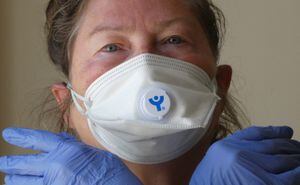Second wave of Covid-19 will be like 'going back to war'
NHS staff are 'tired, exhausted and dreading' the prospect of a second spike in Covid-19 cases, West Midlands health bosses have been warned.

The stark message came as the board of Sandwell and West Birmingham NHS Hospitals Trust met to discuss the impact of coronavirus.
One trust boss compared the strain which frontline staff would face with the fatigue faced by military veterans returning to a war zone.
As of Friday 358 coronavirus patients have died at Sandwell General and City Hospitals.
Board member Mike Hoare said they were similarities between the experiences of soldiers and health workers fighting the pandemic
Drawing a parallel with combat, he said: "I’ve seen this, especially in the military environment. When individuals go on their first tour – because they don’t know what to expect – they build up their energy and adrenalin.
"When they go on their second tour they know what is coming and that can be really, really draining
"We should be mindful of the stress and horrors they’ve had to go through."
He made his comments after senior HR boss at the trust described how beleaguered doctors, nurses and other medical staff were stoic and prepared – but privately fearful of what a second wave of cases could bring.
Speaking about the possibility of another wave, Raffaela Goodby, the trust’s director of people and organisational development, said: "There is a sense of tiredness and almost a sense of here we go again and although people are saying the words ‘we are preparing for a second surge’, when you speak to people informally about it they are dreading it.
"If it comes again, that sense of ‘Oh we’ve got to go again’ and find all that energy again from our reserves, I think, is going to be more difficult."
She added: "People are exhausted, not only are they physical exhausted but mentally exhausted and it if comes again we have to navigate through that."
Last month, the trust announced it had recruited 250 volunteer mental first aiders to support staff and was also offering specialist therapy used to treat post-traumatic stress disorder.
